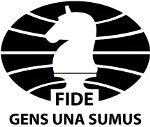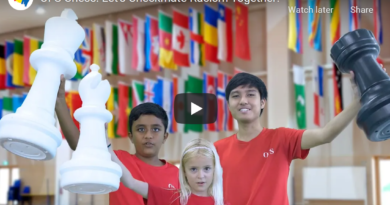Strategy for Training School Managers for Chess Teaching in Schools: The Case of Brazil
by Professor Ms. Charles Moura Netto
Introduction
Chess is a strategy game that can be used as a pedagogical tool to promote the cognitive, social, and emotional development of children and young people. In Brazil, chess is an optional curricular subject in some public schools, but there are still many challenges to its implementation.
One of the main barriers to the implementation of chess in schools is the lack of knowledge and support from regional education leaders and school principals (educational managers). Managers are responsible for making important decisions about the curriculum and extracurricular activities of schools, and they need to be “convinced” of the importance of chess to support its implementation. With this in mind, the National Chess in Education Commission of the Brazilian Chess Confederation, through its President GM Darcy Lima and its member, Prof. Charles Moura Netto, instituted the “Training of School Managers for Chess Teaching in Schools”.
Objectives
The objective of this training program is to raise awareness among school managers about the importance of chess as a pedagogical tool and to facilitate the implementation of educational projects related to chess.

Pedagogical chess training for managers in Espirito Santo, Brazil conducted by Prof. Moura Netto
Methodology
The training is 40 hours long, consisting of 16 hours of in-person sessions (4 sessions) and an additional 24 hours of online activities. The training content includes the following topics:
- A brief history of chess.
- The development of chess in the world and in Brazil.
- Chess and its educational, artistic, sport, and cultural aspects.
- Chess and the development of cognitive skills.
- Cognitive processes involved in the game of chess.
- Educational legislation and the inclusion of chess in schools.
- Possibilities for the inclusion of chess in schools.
- Planning chess in “my school”.
Expected results
At the end of the training, school principals will be able to:
- Understand the importance of chess as a pedagogical tool.
- Evaluate the benefits of chess for the cognitive, social, and emotional development of children and young people.
- Develop strategies for implementing educational projects related to chess.
Challenges
One of the main challenges to the implementation of this training program is the availability of resources. The training is free, but it requires the participation of school principals in four face-to-face meetings. This can be a challenge for principals of public schools, who often have busy schedules.
Another challenge is the change of mindset. School managers need to be willing to consider chess as a valid pedagogical tool. This can be difficult, as chess is often seen as a leisure activity, not as an educational activity.
Conclusion
Chess is a powerful pedagogical tool that can benefit children and young people of all social backgrounds. Training of school principals is an important step in facilitating the implementation of chess in public schools. With the support of informed and committed principals, chess can become an accessible and effective tool to promote educational development.
Recommendations
To increase the effectiveness of the training program, we adopted the following complementary actions:
- Offer the training in different formats, including online and in person, to meet the needs of different school principals.
- Develop training materials, such as videos, articles, and books, to facilitate the learning of participants.
- Offer opportunities for networking and exchange of experiences between school principals to promote collaboration and the exchange of ideas.
We believe that these actions will make the training program even more effective and contribute to the dissemination of chess as a valuable pedagogical tool.
Professor Ms. Charles Moura Netto is the Member of the FIDE Education Commission

